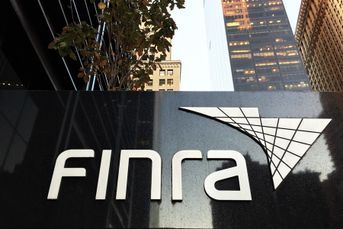DOL fiduciary rule to cost the securities industry $11B by 2020: study

Independent broker-dealers expected to be hardest hit, with a 22% loss in revenue.
Implementing the Department of Labor’s new fiduciary rule for retirement accounts will cost the brokerage industry $11 billion in revenue over the next four years, according to a recent study from A.T. Kearney, a consultant.
Hardest hit will be independent broker-dealers, who stand to lose $4 billion in revenue, or 22%, of the industry’s total, according to the study, which was released in August. IBDs are also expected to see a decline of $350 billion in client assets, or 11% of the industry’s total.
“The new rule … will result in several important changes, including [requiring] advisers to adhere to a ‘best-interest standard,’ new compliance protocols, an increased level of scrutiny on fees and adviser compensation, and accelerated product shift to fee-based and robo-advisory,” according to the study.
“Independent broker-dealers will face the largest disruption, as the rule will strain the resources of smaller players,” according to A.T. Kearney. “This will drive industry consolidation and the potential outflow of advisers to other distribution formats, like dual RIAs.”
Wirehouses stand to lose $4 billion in potential revenue, or 8% of the industry’s total, and $300 billion in assets, or 5% of the industry’s total. Other brokerage firms such as regionals will lose $3 billion in revenue 11% of their total, and $250 billion in assets, or 6% of their total. “Broker-dealers will see a significant sales impact as high commission products (such as annuities) lose favor,” according to the study.
“Wirehouses will accelerate their ongoing transition to fee-based advisory, while capitalizing on their ability to continue to sell high-fee proprietary products following the most recent rule revision,” according to the study.
The study reveals a potential $20 billion revenue impact for the wider financial services industry, which includes product manufacturers, robo-advisers, and registered investment advisers.
(More: The most up-to-date information on the DOL fiduciary rule)
There are two distinct ways for firms to stand out and differentiate themselves regarding the DOL’s new rule, according to the study. They can implement key compliance measures “to ensure the company and business model are ready for the rule to take effect with minimal disruptions and risks,” the study stated.
Firms can also “reposition strategy for the future to help seize the rule as an opportunity to enhance strategies, challenge business models and accelerate many of the ongoing efforts already taking place in the industry,” according to the study.
(See: Selling annuities under the DOL fiduciary rule is a whole new ballgame
A.T. Kearney’s figures are in line with other projections regarding the potential loss of revenue or cost to the securities industry putting the new DOL fiduciary standard into place.
In a study released last year, the Financial Services Institute estimated that the DOL’s fiduciary rule would cost firms and clients nearly $3.9 billion in total startup costs to implement the rule. The Securities Industry and Financial Markets Association last year estimated that compliance costs could range from $240 million to $570 million per year over ten years, or $2.4 billion to $5.7 billion.
Learn more about reprints and licensing for this article.







